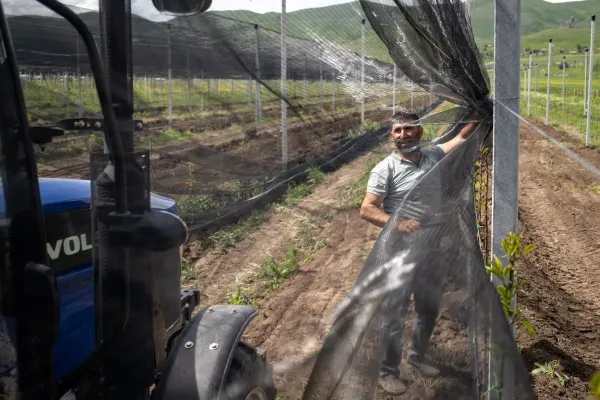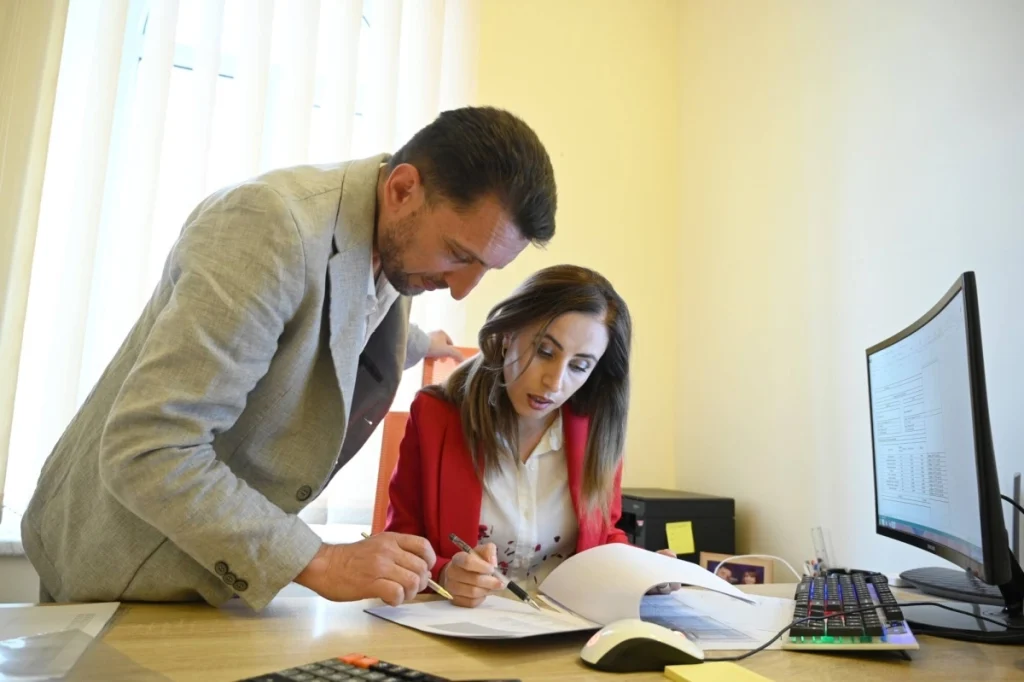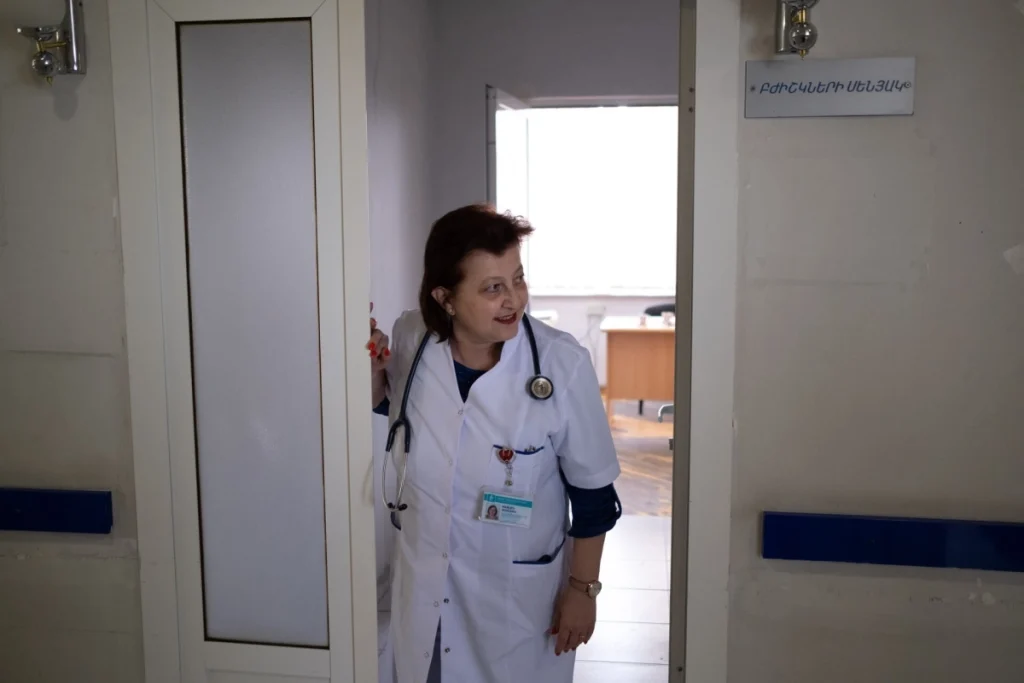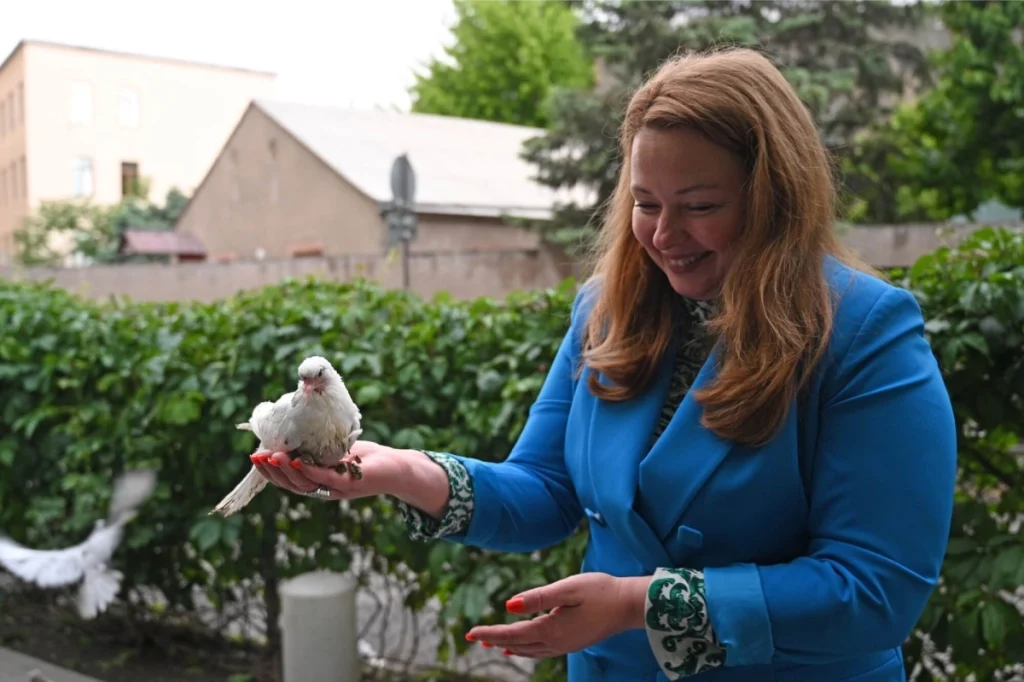Europe Day Reflections: How Refugee Solidarity Is Taking Root in Armenia

This article was jointly drafted by the Delegation of the European Union to Armenia and UNHCR Armenia.
When the Government of Armenia made its pledges at the Global Refugee Forums (GRF) in Geneva in 2019 and 2023, it did so with a clear sense of direction: to strengthen national systems, expand refugee inclusion, and ensure that those forced to flee are treated not as outsiders, but as participants in the country’s future.
That ambition — rooted in the spirit of the Global Compact on Refugees (GCR) — is steadily being translated into reality, with tangible support from the European Union (EU) and UNHCR. As the international community just marked Europe Day, Armenia offers a compelling example of how global frameworks, when paired with genuine partnerships, can shape inclusive and effective refugee responses.
From Global Compact to National Practice
Armenia’s approach has been guided by the GCR’s core principle: that responding to forced displacement is a shared responsibility. In the months following the mass influx of refugees in 2023, Armenia’s national systems — health, education and social protection — were placed under significant strain. Yet, rather than resorting to temporary or parallel structures, the Government chose to integrate refugee needs into existing public services, in line with its pledges at the GRF.
This meant enrolling thousands of refugee children into public schools, ensuring access to primary healthcare, and expanding coverage of cash assistance programmes. It also meant strengthening the legal and institutional framework for asylum and investing in digital tools to improve case management. These were not small undertakings — but they were undertaken with resolve.

The Role of Partnership and Responsibility-Sharing
Throughout this effort, the European Union has played a pivotal role, not only as a donor, but as a strategic partner in advancing shared goals. Since September 2023, EU support for refugees in Armenia has exceeded EUR 67 million. More than a funding figure, this contribution represents a model of solidarity in action.
Working in close coordination with UNHCR and the Government of Armenia, the EU’s support has helped stabilize national services under pressure. Direct budget support, for instance, has enabled the Government to continue paying out social benefits, fund social assistance programmes, and maintain education and health coverage for refugees. Civil society organizations — another cornerstone of the response — have received targeted EU support to promote legal awareness, job readiness, and social inclusion at the community level.
As Ambassador Vassilis Maragos, Head of the EU Delegation to Armenia, notes:
“EU’s support to refugees in Armenia is a clear demonstration of our commitment to shared responsibility towards protection and sustainable solutions for refugees. By working hand-in-hand with the Armenian Government, civil society, and international partners, we strive to turn solidarity into tangible action that uplifts refugee communities.”
These efforts respond directly to the pledges Armenia brought to the GRF. In matching and supporting them, the EU is not simply assisting a partner country, it is helping to operationalize the Compact’s vision of responsibility-sharing. A vision where the weight of crisis does not fall solely on front-line States but is carried together.

A Shared Investment in Inclusion
The results, while still unfolding, are visible. Refugee families have been supported through Government led programmes, underpinned by solidarity from the international community, through both targeted assistance and gradual inclusion in social protection systems. They are receiving steady assistance through national cash support systems, while children who arrived last year now attend public schools alongside their Armenian peers. Community centres offer access to services like legal support and advice, social work, and job training and are being strengthened through collaborative efforts. Local authorities, supported by social workers and civil society actors, are working to bridge gaps and foster trust.
These efforts have been supported through a combination of humanitarian aid, budget support, and civil society-led initiatives. The funding provided by the EU has helped sustain this comprehensive approach — from emergency relief to long-term integration — ensuring that assistance remains both timely and anchored in national systems.
Life for many refugee families in Armenia has begun to stabilize. With access to basic services, livelihoods, and legal protections, many are now navigating their future with greater security and dignity. But the journey towards full inclusion is far from over. Efforts continue to strengthen social protection systems, expand employment opportunities, and address long-term housing needs. Sustained support from international partners remains essential, not only to uphold the progress made so far, but to help Armenia continue delivering on its pledges and ensure that refugee protection remains a shared and lasting commitment.
Looking Ahead
As Europe Day reminds us of the strength found in unity and shared purpose, Armenia’s evolving refugee response stands as a testament to what partnerships can achieve. With continued cooperation between the Government, EU, UNHCR, and partners, the country is steadily moving towards the realization of its GRF pledges.
In a world where forced displacement continues to rise, Armenia’s experience shows that even in the face of complex challenges, when responsibility is shared, and action is collective, solidarity can be transformed into results.

About the Global Compact on Refugees in Armenia.
The Government of Armenia’s response to displacement has been shaped by its active engagement with the Global Compact on Refugees, a voluntary international framework adopted in 2018 to promote more predictable and equitable responses to refugee situations. Since joining the Compact, the Government has made 13 formal pledges — several already fulfilled — ranging from asylum system reform and statelessness prevention to the inclusion of refugees in national education, healthcare, housing, and employment services. Most of these efforts contribute to two of the Compact’s core objectives: easing pressures on host countries and enhancing refugee self-reliance. Supporting this process, the European Union and UNHCR — alongside other international and local partners — have combined emergency assistance with longer-term investments in national systems. This joint support has enabled Armenia to align policy with practice, advancing a refugee response that is both sustainable and nationally owned.